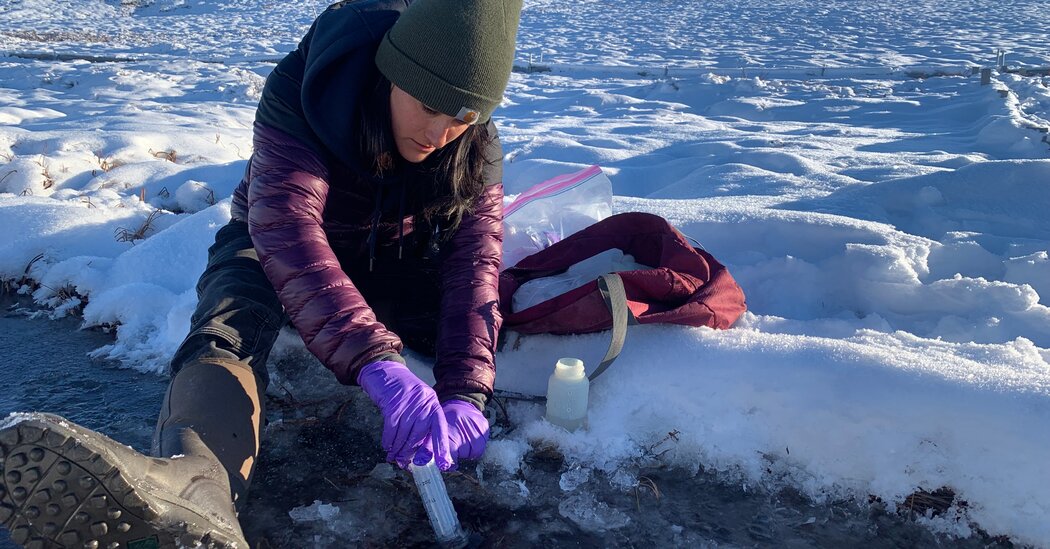Climate science has been stymied as Russia continues its war in Ukraine. The stalled work threatens to leave the West without a clear picture of how fast the Earth is heating up.
Western scientists studying the Arctic are increasingly lost in the hunt for data, the result of the cutoff in relations with Russia.
Crucial climate science has been stymied as Russia, which makes up over half the Arctic, continues its war in Ukraine. Data flowing between Western and Russian scientists has slowed to a trickle with Western-imposed sanctions and other restrictions, interrupting work on a host of projects.
The stalled collaboration is setting back efforts to monitor the shrinking of the Arctic, which is warming four times faster than the global average and accelerating the planet’s rise in temperature. That threatens to leave governments and policymakers without a clear picture of how fast the Earth is heating up.
“It may be impossible to understand how the Arctic is changing without Russia,” said Alessandro Longhi, an Italian permafrost scientist. He spoke as he trudged through snow earlier this month with a colleague near Toolik Field Station, a research outpost run by the University of Alaska Fairbanks in the northern part of the state. Western scientists, locked out of Russia, have increasingly turned to stations like these to work in the Arctic.
As the researchers headed out to collect readings on how vegetation interacts with the vulnerable permafrost soils, their prints in the snow joined with tracks of caribou, fox and ermine heading in all directions. Dr. Longhi stopped and stepped back as his colleague placed a plastic chamber over a tiny portion of the vast Arctic tundra to test whether gasses released from the permafrost varied by the plants, such as cotton grass, buried underfoot.
“This is the worst-case scenario for what may happen elsewhere,” he said about the changing permafrost around Toolik.
